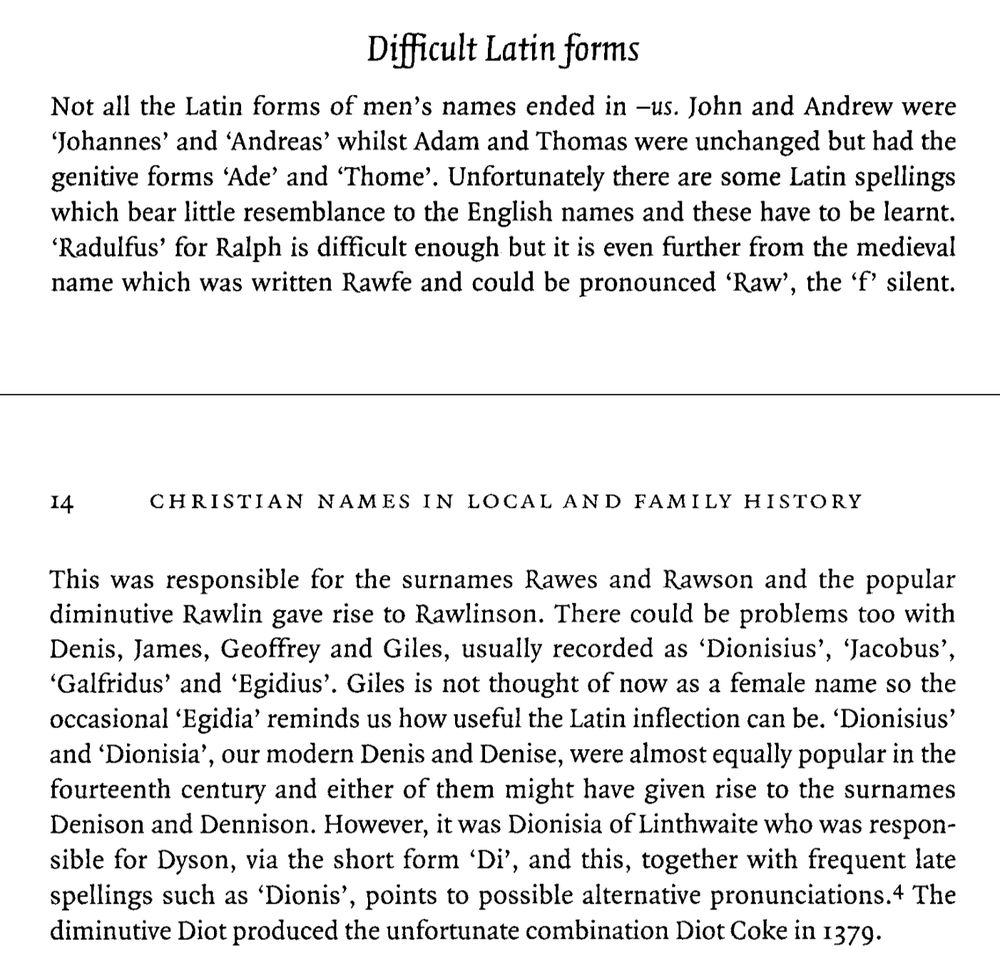George Redmonds, a researcher with the British National Archives studying 14th-century names, finds a girl’s moniker that pops with recognition: Diot Coke. Redmonds believes Coke was a corruption of “Cook,” and “Diot” was a diminutive of Dionisia, the modern-day name Denise. He says Dionisia was a very common name then. Diot Coke was born in 1379 in West Riding, Yorkshire. {listen}
